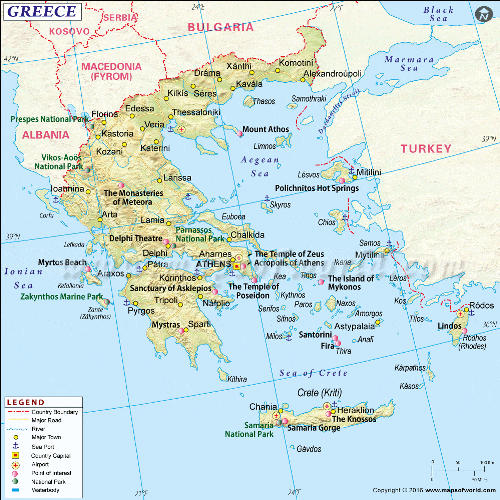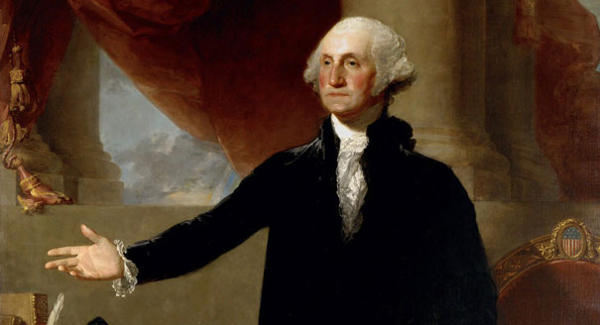A Pepper Grinder Post
Ministry for the Average Person - Part 1
I heard a sermon recently about waiting. It was the first of a series about the early church, and started, appropriately enough, with the time after Christ's ascension but before the coming of the Holy Spirit on the day of Pentecost. A key verse for this sermon was Acts 1:4.
On one occasion, while he was eating with them, he gave them this command: "Do not leave Jerusalem, but wait for the gift my Father promised, which you have heard me speak about." (NIV)
I think this is a fantastic message for us with our breakneck-speed lives. There are times when God's command is simply to "wait."
The problem was that the pastor seemed to feel that this message was not enough. Nor was the example of what we are actually told the disciples did during those days, which was to pray. (They also chose a replacement apostle for Judas Iscariot.) My guess is that he was afraid this message might be abused. What if, when they tried to get a new teacher for the third-grade Sunday school class, the person they approached said, "Sorry, but right now I'm just praying and waiting on the Lord"?
 So, the pastor threw into the sermon a caution about being idle while we're waiting. I agree with this to an extent. I don't think it's good just to hang around and watch TV because we don't know where God is leading us. But the examples the pastor gave were of what he and his wife did when they were waiting to move. Both of them were involved in various ministries in the local church right up until they left. Specifically, I remember him saying that his wife helped lead worship in the last few days before they moved.
So, the pastor threw into the sermon a caution about being idle while we're waiting. I agree with this to an extent. I don't think it's good just to hang around and watch TV because we don't know where God is leading us. But the examples the pastor gave were of what he and his wife did when they were waiting to move. Both of them were involved in various ministries in the local church right up until they left. Specifically, I remember him saying that his wife helped lead worship in the last few days before they moved.
Now, I'm not saying there is anything wrong with what the pastor and his wife did. My problem was the message he was conveying. Here is the message I got:
- You should be doing ministry all the time.
- Ministry means being involved in standard church activities.
I agree with the first point, to an extent. I think we should always be laying our lives before God and then trying to follow his leading. However, I'm not sure this will always look like ministry. When Elijah fled from Jezebel and journeyed forty days into the desert to meet with God, was he "doing ministry"? What about when Jesus spent forty days in the wilderness after he was baptized by John? What about when the early apostles were praying and waiting for the Holy Spirit? If you define ministry as doing whatever God wants you to do, then I would definitely say we should always be doing ministry. If you think you are only doing ministry when you are helping someone in some way, I would not agree, because I don't think the Bible paints a picture of this being the only thing God might have us doing.
The second point is what led me to do the research for this piece. I wanted to know what the Bible had to say about what the average Christian was called to do. I didn't want to find out about what ministry the apostle Paul or the prophet Isaiah were called to. I wanted to see what the Bible had to say to the average woman and man about what ministry should look like for them. This series is a result of that investigation.
I'm going to start by looking at a piece of Paul's advice to Titus. It appears that Paul and Titus had traveled to Crete at some point and evangelized the island. Paul left Titus behind to establish churches and make sure they got off on the right foot. This is not the easiest task anywhere, but may have been especially difficult in Crete. As in other places at that time, there were dangers from people who tried to make the faith nothing but a mild variant of Judaism, as well as from people spouting other forms of false teaching. There is also reason to believe there were more moral failures in Crete than in some other places where churches had been planted.*
 Paul's desire is that the fledgling groups of believers in Crete would grow up into strong, healthy churches. Because of this, what Paul tells Titus to teach the Cretans seems like an excellent thing to look at when we want to discover what ministry should look like for the average Christian. In fact, both the letters to Timothy are like this as well. This is why these letters are often grouped together by scholars and referred to as the Pastoral Epistles. They are not aimed at people in unusual circumstances or with special callings. They focus on how ordinary people who have been saved by God's grace should go about living their lives so the church will be strengthened and grow.
Paul's desire is that the fledgling groups of believers in Crete would grow up into strong, healthy churches. Because of this, what Paul tells Titus to teach the Cretans seems like an excellent thing to look at when we want to discover what ministry should look like for the average Christian. In fact, both the letters to Timothy are like this as well. This is why these letters are often grouped together by scholars and referred to as the Pastoral Epistles. They are not aimed at people in unusual circumstances or with special callings. They focus on how ordinary people who have been saved by God's grace should go about living their lives so the church will be strengthened and grow.
Sounds exactly what many evangelical churches are looking for. They want to be strong and they want to grow. Although Paul isn't accepting speaking engagements, he did leave behind some clear writings. Did he advocate seeker-friendly worship? Did he aim to provide programs that would meet people's real needs? Maybe he was into the home group model. Here is one part of what he wrote to Titus:
Speak what is appropriate for healthy teaching. Teach the older men to be clear-headed, honorable, and self-controlled--sound in faith, love, and endurance. In the same way, teach the older women to be reverent in their behavior, not slanderous, not addicted to lots of wine, and teaching what's good, so they can encourage the younger women to love their husbands and children, to be self-controlled, pure, busy at home, kind, and to submit to their own husbands, so people won't speak against the word of God. (Titus 2:1-5, my translation)
Who does Paul start out with when giving instructions about how to teach different groups? He starts out with the older men. You might be thinking something like, "Well, life expectancy was shorter in those days. An older man might have been in his late thirties or his forties." Nope. Other Greek writings from around this period give a more precise definition of what is considered an older man. One writer puts older men in their fifties; another puts this age group in the sixties or above.
It strikes me that this group is mentioned first, as if they were the cornerstone of the local congregation. What's noteworthy about this is that in most churches I have been involved with, "elder ministry" is not the centerpiece of church ministry. The people whom the pastor really wants to energize are the people in their twenties to forties or fifties. They are the ones with the energy and vitality to get things done. And after all, what is ministry if not "getting things done?" (More on this point later.) Sure, older people might teach some Sunday school classes, but mostly, they are relegated to groups designed not so much to have an impact on the world or others in the church. We want to keep them happy and give them social gatherings that will keep them from feeling lonely. In the modern church economy, they are consumers rather than producers.
 So Paul is being kind of weird here, from our modern viewpoint, right from the get-go, but let's bear with him. What should Titus teach these old geezers to be like? Looking at the modern North American church, I would say, he should teach them to be cheerful, energetic (as much as possible), fun-loving, and open to new ways of doing things. Most pastors seem to know that if the key people in the church don't have these qualities, it is the kiss of death for church growth. Somehow, none of these qualities made Paul's short list. He wants them to be clear-headed, or literally, sober. I think the word here conveys the sense of someone who can think clearly about things, without being overly swayed by desires or emotions.
So Paul is being kind of weird here, from our modern viewpoint, right from the get-go, but let's bear with him. What should Titus teach these old geezers to be like? Looking at the modern North American church, I would say, he should teach them to be cheerful, energetic (as much as possible), fun-loving, and open to new ways of doing things. Most pastors seem to know that if the key people in the church don't have these qualities, it is the kiss of death for church growth. Somehow, none of these qualities made Paul's short list. He wants them to be clear-headed, or literally, sober. I think the word here conveys the sense of someone who can think clearly about things, without being overly swayed by desires or emotions.
He also wants them to be honorable, or dignified. My wife had a friend who was voted most dignified in their high school class. This, like the "most studious" designation which both my wife and I received, is not something seen as a great compliment at most high schools. When Paul uses the word, it paints a picture of someone who earns the respect of those around him by consistently acting in a serious and upright way, and showing consistency and integrity. This is not someone who is two-faced or says nasty things about people behind their backs. Paul also says the older men should be taught to be self-controlled. This word in the Greek carries the idea, not just of being able to control your passions, but also of being prudent and thoughtful. He then rounds out the list by saying they should be sound (or healthy) in faith, love, and endurance.
The man described here sounds like what would have been considered an ideal older man in many times and cultures. In my mind, I contrast this with the billboard for a retirement community in my area which shows a couple, looking like they might be in their early sixties, riding a golf cart, each with a hand in the air and mouths open in an apparent yell of delight and freedom, looking more like college students heading to Fort Lauderdale for spring break than the sober elder statesmen Paul has described.
I think the change can be explained by the way our culture worships youth. The result is that the more youthful an older person can look and act, the better. Paul, on the other hand, paints a picture of an older man who has the maturity and seriousness of age and experience, combined with the faith, love, and endurance produced by Christ.
Next post, we'll look at what Paul says to older women.
- Pepper
Posted 2017-01-14
*When I first posted this, I thought that when someone referred to someone as a cretin, it meant the same as a Cretan (that is, a native of Crete). I thought cretin meant someone with loose morals, sort of going along with a quote Paul repeats about Cretans in Titus 1:12 ("Cretans are always liars, evil brutes, lazy gluttons." NIV) Actually, cretin is a completely different word from Cretan. Cretin means either a mentally deficient person or a person suffering from cretinism which is a serious, congenital thyroid condition generally resulting in physical deformities and/or mental retardation. Fascinatingly, the word cretin appears to be derived from a particular pronunciation of "Christian." That tells us something about what people in the ancient world thought of Christians!
**Photo Credits: TV watcher from www.express.co.uk, map of Greece from mapsofworld.com, George Washington from pastnow.wordpress.com.
